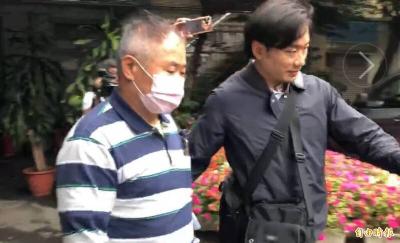A ban on importing and manufacturing powdered medical gloves is to start in 2021, because the powder causes health problems, the Food and Drug Administration (FDA) said on Sunday.
Powdered gloves can cause allergic reactions, inflammation, adhesions and an increased risk of infection, Division of Medical Devices and Cosmetics section head Wu Cheng-ning (吳正寧) said, citing a ban issued by the US FDA in 2017.
Germany prohibited powdered medical gloves as early as 1998, while Japan and the Philippines implemented a ban at the beginning of this year, Wu said.
The cornstarch in the gloves relays allergens, he added.
A meeting of experts convened in 2017 concluded that the risks of using the gloves outweighed any benefits, Wu said.
The Taiwanese agency had planned to phase out the gloves, banning their importation and manufacture from 2020, unless manufacturers could produce scientific evidence proving the gloves did not have adverse effects, Wu said.
After manufacturers said that they had contracts with hospitals through next year and that they needed more time to comply with the planned change, it postponed the ban until Jan. 1, 2021, he said.
When the ban takes effect, all manufacturing licenses for powdered gloves will be revoked and importing them will be illegal, Wu added.
Only powdered gloves manufactured or imported before Dec. 31 next year are to remain on the market, Wu added.
Breaching the regulation could result in a fine of NT$60,000 to NT$50 million (US$1,908 to US$1.6 million) and a prison sentence of up to three years, Wu said.
Powdered gloves cost about 40 percent less than other types and are used mainly in hospitals.
From 2014 to 2016, about 10 million pairs of powdered surgical gloves were used, compared with 500,000 to 600,000 pairs of non-powdered ones, the agency said.
Twenty-two manufacturers hold 53 licenses for making surgical gloves — with 20 of them for powdered gloves, Wu said.

Taiwan would benefit from more integrated military strategies and deployments if the US and its allies treat the East China Sea, the Taiwan Strait and the South China Sea as a “single theater of operations,” a Taiwanese military expert said yesterday. Shen Ming-shih (沈明室), a researcher at the Institute for National Defense and Security Research, said he made the assessment after two Japanese military experts warned of emerging threats from China based on a drill conducted this month by the Chinese People’s Liberation Army’s (PLA) Eastern Theater Command. Japan Institute for National Fundamentals researcher Maki Nakagawa said the drill differed from the

A fugitive in a suspected cosmetic surgery fraud case today returned to Taiwan from Canada, after being wanted for six years. Internet celebrity Su Chen-tuan (蘇陳端), known as Lady Nai Nai (貴婦奈奈), and her former boyfriend, plastic surgeon Paul Huang (黃博健), allegedly defrauded clients and friends of about NT$1 billion (US$30.66 million). Su was put on a wanted list in 2019 when she lived in Toronto, Canada, after failing to respond to subpoenas and arrest warrants from the Taipei District Prosecutors’ Office. Su arrived at Taiwan Taoyuan International Airport at 5am today on an EVA Air flight accompanied by a

A 79-year-old woman died today after being struck by a train at a level crossing in Taoyuan, police said. The woman, identified by her surname Wang (王), crossed the tracks even though the barriers were down in Jhongli District’s (中壢) Neili (內壢) area, the Taoyuan Branch of the Railway Police Bureau said. Surveillance footage showed that the railway barriers were lowered when Wang entered the crossing, but why she ventured onto the track remains under investigation, the police said. Police said they received a report of an incident at 6:41am involving local train No. 2133 that was heading from Keelung to Chiayi City. Investigators

The Keelung District Prosecutors’ Office today requested that a court detain three individuals, including Keelung Department of Civil Affairs Director Chang Yuan-hsiang (張淵翔), in connection with an investigation into forged signatures used in recall campaigns. Chang is suspected of accessing a household registration system to assist with recall campaigns targeting Democratic Progressive Party (DPP) city councilors Cheng Wen-ting (鄭文婷) and Jiho Chang (張之豪), prosecutors said. Prosecutors yesterday directed investigators to search six locations, including the Chinese Nationalist Party’s (KMT) Keelung office and the residences of several recall campaign leaders. The recall campaign leaders, including Chi Wen-chuan (紀文荃), Yu Cheng-i (游正義) and Hsu Shao-yeh